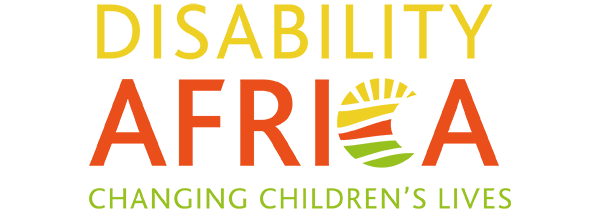We were recently asked: ‘Why are you working on projects in several countries? Wouldn’t it be more efficient to concentrate on just one country?’
It’s a really good question and it deserves an answer. So here goes.
There are literally millions of disabled children in African countries. A very large majority of them are extremely poorly served and comprehensively excluded from the communities in which they live. Disability Africa exists to work towards improving outcomes for all of them.
We’re a pretty small organisation. It goes without saying that we don’t have the resources to help every single disabled child in Africa right now. In fact, compared with the size of the problems that we exist to tackle our resources are tiny (please feel free to do your bit to help us out in this regard!)
We are small, but we want to do something big, because something big is required. We think the best way to approach these issues is to do something small first. If we can show that it works the hopefully other people will do it too.
We started in The Gambia, which as it happens is one of Africa’s smallest countries. We worked with local people to deliver a project in a large village called Gunjur. The project did something new and different, it worked at a community level and aimed to both raise awareness of the rights and needs of disabled young people and then develop and deliver services to meet those needs. It’s going pretty well. Attitudes are changing and disabled children are being prioritised like they never have been before. We did something small and it worked.
We think that what we did in The Gambia, should be just as effective in other African countries too, in every African country in fact. Our understanding of disability is that it is the way non-disabled people think that disables people with impairments more than anything else. Everywhere we have been in Africa we have found that negative beliefs and a lack of understanding about disability result in dreadful outcomes for disabled children. This should mean that our approach is appropriate anywhere. But we need to prove it.
No two communities in Africa are the same, it is a continent of fifty-four independent countries with extraordinary diversity which is underrepresented in the media in the Global North. No two projects are exactly the same either. But every community needs to understand the rights and needs of disabled children, and every community needs to have services to meet the needs of disabled children – these are the principles upon which our model is based. By working in different countries and very different contexts, we are proving that this model is ‘replicable’.
So our next small projects are in Zambia (in a poor suburb on the outskirts of a large city) and in Kenya (in an isolated, remote and rural community). Both these countries and these specific locations have their similarities and differences when compared with The Gambia. In delivering these newer projects we are aiming to demonstrate that our model of ‘Inclusive Community Development’ can improve outcomes for disabled children in different contexts across Africa. In 2017 we will begin working in Sierra Leone.
Our aim is to highlight the issues facing disabled children in Africa and demonstrate successes in tackling these issues with a simple template across a range of contexts and countries in the hope that others might see that we are on to something. Other people and organisations, whether they are community groups, local NGOs, local government, international charities, national governments or international organisations, will hopefully take note. They will see that what we have done works, and they will want to do it themselves, on a variety of scales. When they start doing so, the impact of our small pilot projects in five African countries will start to multiply, and get very big indeed.
We are already regularly approached by communities and organisations requesting that we partner with them both in Africa and the UK. We don’t have the means to do so at present. But we are working on the production of resources to help other organisations replicate our template without our direct involvement.
Charities like to tell their donors and supporters the personal stories of the people they have helped. They like to tell you that x amount of money can do something to improve a particular child’s life. People like to think that their £10.00 a month helps a particular individual, and on one level it absolutely does.
But here’s a different way to think about the impact of a donation, which might just be more exciting. By donating to Disability Africa you are investing in an idea. An idea that has the power to transform the way disabled children are provided and cared for across the whole of Africa.
Yes, we can tell you that your donation will help Fatou in The Gambia or Mapenzi in Kenya, because it will. But by helping us to demonstrate that our template for developing inclusive communities is replicable, you’ll be investing in an idea that could change the lives of hundreds, thousands and millions more disabled children in Africa in years to come.
How does that sound?
Since you're here...
...we think that you're probably interested in helping disabled children in Africa? If you like what we do, we'd love you to help us do more of it. A small one-off or monthly donation really would help us to change more lives.

